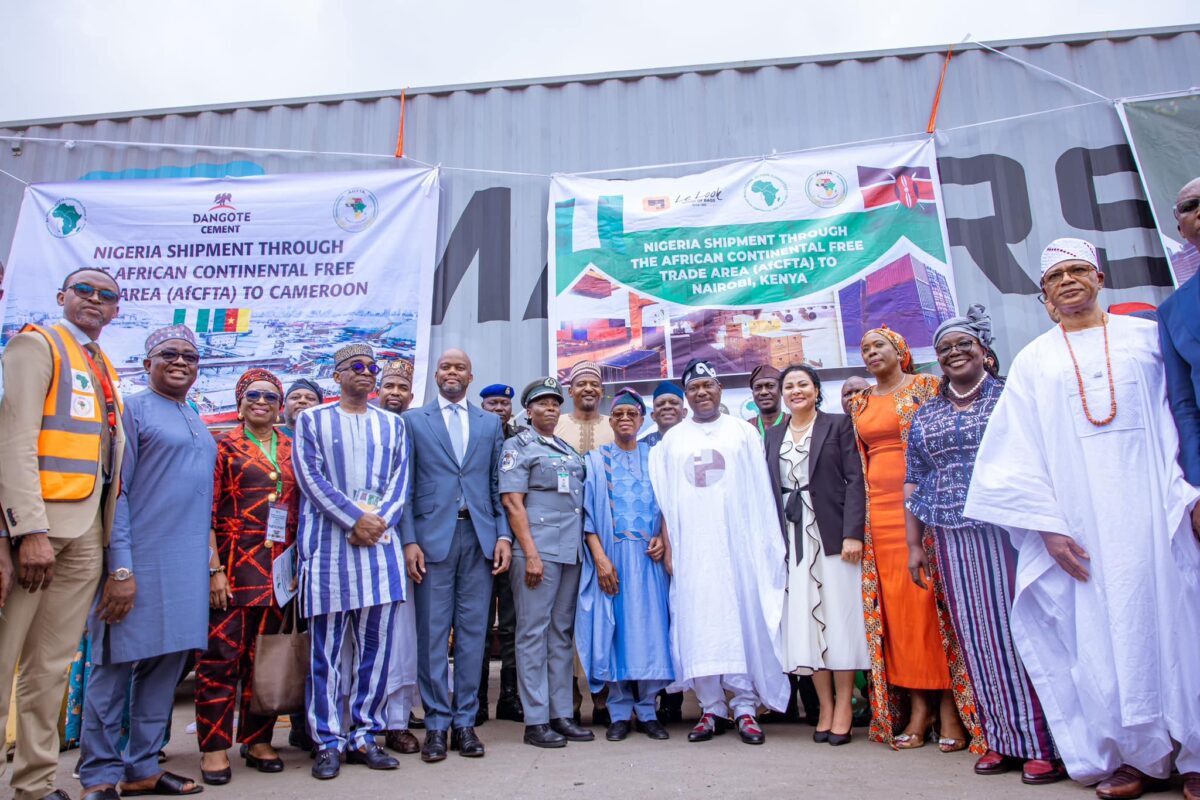
By Oluyinka Onigbinde
The Minister of Finance, Mr. Wale Edun, has blamed the unpreparedness of the private sector for the significant delay in Nigeria’s engagement with the African Continental Free Trade Area (AfCFTA).
This is even as findings by Shipping Position Daily have revealed that despite the high hopes and grand promises, bureaucratic inertia and policy misalignment may still hinder the expected benefits of participation in the continental trading platform.
Speaking during the launch of the Guided Trade Initiative (GTI) under AfCFTA in Lagos last week, Edun informed that intra-African trade only accounts for a mere 15% of the continent’s total trade, while also attributing the delays to systemic bureaucracy, inconsistent policy frameworks, and the lack of readiness within the private sector.
Edun explained that the private sector has been slow to align with the necessary standards and practices required for effective participation in AfCFTA.
This unpreparedness, he said, has hindered the seamless execution of trade agreements and the optimization of opportunities presented by the continental free trade area. “Many businesses are yet to meet the regulatory and operational benchmarks essential for cross-border trade under AfCFTA,” Edun remarked.
The Minister highlighted that the GTI is essentially a pilot to test the readiness of businesses and the operational environment under AfCFTA.
Adding to the discourse, Dr. (Mrs.) Doris Uzoka-Anite, Minister of Industry, Trade, and Investment, lauded the transformative potential of AfCFTA, emphasizing its role in fostering economic integration and unlocking unprecedented opportunities for Nigeria. However, she acknowledged that extensive stakeholder engagements and collaborations had been necessary, contributing to the protracted rollout.
According to her, “further complicating the implementation has been the legal framework required to facilitate the free flow of goods and services under AfCFTA. Edun announced that the process of gazetting tariff concessions is nearing completion, a critical step that has been a significant bottleneck”.
Despite the celebratory tone of the launch, the underlying narrative is clear: Nigeria’s delayed engagement with AfCFTA is a reflection of broader systemic challenges. The success of the first businesses trading under this initiative, from exporters of black soap to smart cards, symbolizes the resilience and potential of Nigerian enterprises. These pioneering efforts are set to inspire others, driving the nation towards a more integrated and prosperous future.
As Dr. Uzoka-Anite urged businesses to “expand their horizons” and innovate relentlessly, the government’s commitment to providing robust policies and a conducive environment remains crucial. However, the active participation of the private sector is indispensable for realizing the full potential of AfCFTA.
Stakeholders say that, the launch of the GTI under AfCFTA is a significant milestone, but it also serves as a reminder of the systemic hurdles that have delayed this moment. As Nigeria steps into this new era of trade and economic integration, overcoming these challenges is imperative to drive sustainable growth and shared prosperity across the continent.















